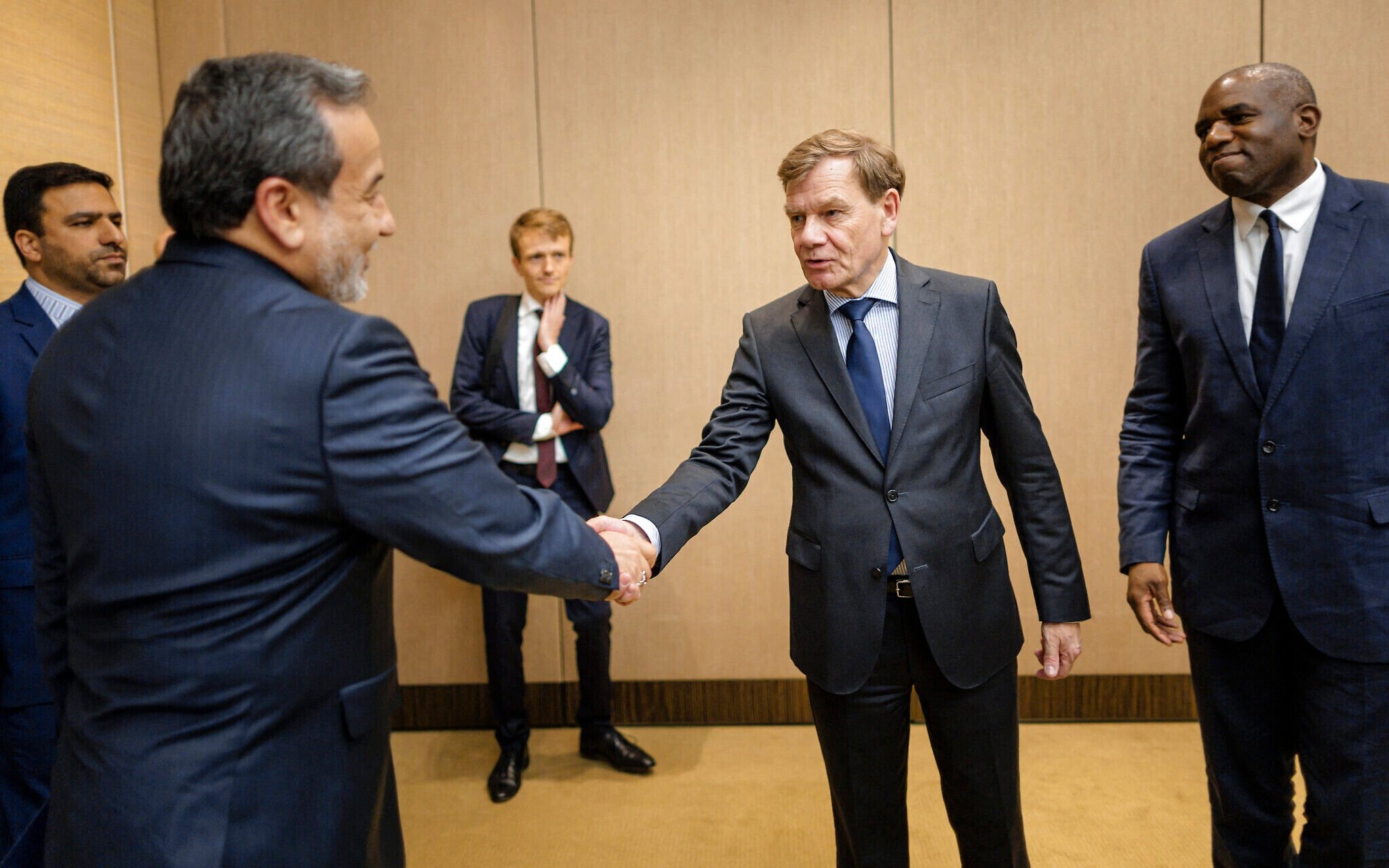Iran is expected to hold critical nuclear talks in Istanbul with three key European nations, France, Germany, and the United Kingdom—following mounting pressure from these countries.
The meeting comes in the wake of strong warnings that Iran may face the reimposition of international sanctions if negotiations do not resume soon or fail to achieve meaningful progress.
The upcoming discussions, scheduled for Friday, are set against the backdrop of escalating regional tensions, especially after recent attacks on Iranian nuclear facilities.
These attacks, attributed to Israel and the United States, occurred roughly a month ago and significantly heightened geopolitical instability.
For the first time since those strikes, Iran’s Deputy Foreign Minister Abbas Araghchi held a joint call with the foreign ministers of the E3 nations (the European trio) and the European Union’s top foreign policy official last Thursday.
The nations involved in the upcoming talks are among the remaining signatories of the 2015 Joint Comprehensive Plan of Action (JCPOA).
This is a landmark agreement that had granted Iran economic relief from sanctions in exchange for limits on its nuclear activities.
The United States, once a party to the deal, unilaterally withdrew in 2018 under the Trump administration, leading to its gradual unraveling.
According to Iran’s Foreign Ministry spokesperson, Esmaeil Baghaei, the Istanbul meeting will occur at the level of deputy foreign ministers.
Iranian state media echoed this statement, highlighting the significance of the dialogue amid worsening diplomatic relations and military tensions.
The E3 countries have issued a firm ultimatum:
if nuclear negotiations between Tehran and Washington, which had been progressing before Israel’s surprise military strikes, do not restart or fail to produce tangible results, they will push for the reinstatement of United Nations sanctions by the end of August.
These sanctions had previously been lifted under the 2015 deal.
Iran, meanwhile, has strongly condemned the recent military actions by Israel and the United States, accusing both of collusion in what Tehran described as targeted assassinations.
The strikes reportedly killed several high-ranking Iranian military officers, prominent nuclear scientists, and hundreds of civilians.
The U.S. claimed its operations “obliterated” three significant Iranian nuclear sites. A ceasefire agreement was finally reached on June 24.
In response to the European pressure campaign, Iran’s Foreign Minister Araghchi criticized the E3, accusing them of relying on outdated and coercive tactics.
“If the EU and E3 wish to play a constructive role, they must act responsibly and abandon threats such as the so-called ‘snap-back’ mechanism, which lacks both moral justification and legal authority,” Araghchi stated in remarks last week.
Prior to the recent escalation, Iran and the United States had held five rounds of indirect nuclear talks through mediation by Oman.
These negotiations stalled due to major disagreements, chief among them Iran’s uranium enrichment levels.
Western nations demand that Iran significantly reduce enrichment to prevent any potential path to nuclear weapon development.
Tehran, however, maintains that its nuclear ambitions are entirely peaceful and geared toward civilian energy use.
Amid these developments, diplomatic efforts extended beyond Europe.
Russian President Vladimir Putin hosted a surprise meeting in the Kremlin with Ali Larijani, a senior adviser to Iran’s Supreme Leader on nuclear policy.
Kremlin spokesperson Dmitry Peskov confirmed that Larijani briefed Putin on the rapidly deteriorating Middle East situation and Iran’s nuclear programme.
Peskov stated that President Putin reaffirmed Russia’s stance on de-escalating tensions and reiterated Moscow’s support for a diplomatic resolution to the nuclear issue.
Russia maintains a cooperative relationship with Iran and has historically provided strategic backing.
Although it has not fully aligned itself with Tehran in the current conflict, even after U.S. involvement in the Israeli-led bombing campaign.
As diplomatic channels reopen in Istanbul, the outcome of these talks will likely determine whether international diplomacy can revive the JCPOA framework or whether the region will face a return to broader sanctions and deeper instability.







